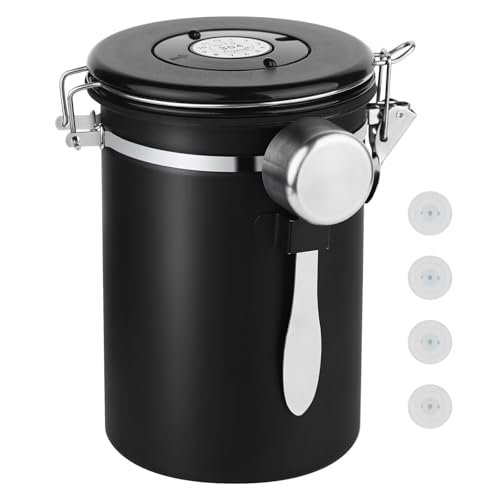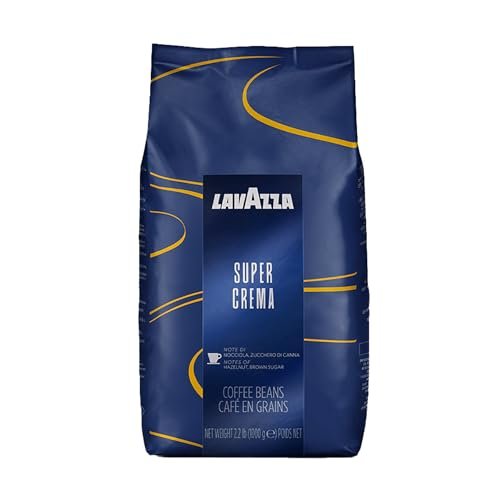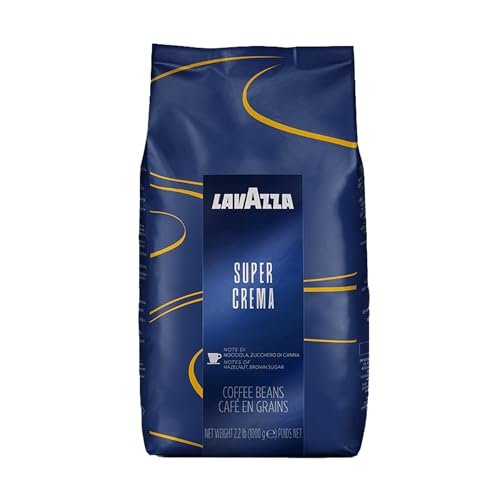Arabica coffee beans are loved worldwide. They offer a smooth, rich flavor.
These beans are grown in high altitudes and are known for their quality. Arabica coffee beans come from the Coffea arabica plant. This plant is native to Ethiopia. It now grows in many tropical climates. Arabica beans are more delicate than other types.
They need specific conditions to thrive. This makes them special and highly prized. Their flavor is complex, with hints of fruit and sugar. Many coffee lovers prefer Arabica beans for their unique taste. In this blog, we will explore what makes these beans so special. We will also look at their history and benefits. By the end, you will understand why Arabica coffee beans are a favorite choice for many.
Introduction To Arabica Coffee
Arabica coffee beans are celebrated for their smooth flavor and rich aroma. They dominate the global coffee market, comprising about 60% of the world’s coffee production. Understanding Arabica coffee can enhance your appreciation of your daily cup.
Origins And History
Arabica coffee traces its roots to Ethiopia. It is believed to have been discovered in the 7th century. Legend has it that a goat herder named Kaldi noticed his goats becoming energetic after eating the berries. Monks then brewed these berries into a drink that helped them stay awake during prayers. The popularity of Arabica coffee spread from Ethiopia to Yemen and across the Arabian Peninsula. By the 15th century, it reached Persia, Egypt, and the Ottoman Empire.
In the 17th century, Arabica coffee made its way to Europe. The Dutch were the first to cultivate it outside Arabia. They established plantations in Java, Indonesia. From there, it spread to the Caribbean and Central and South America. Today, Arabica coffee is grown in many parts of the world.
Global Cultivation
Arabica coffee grows best in high altitudes with moderate climates. Major producers include Brazil, Colombia, Ethiopia, and Honduras. Brazil leads in production, providing about one-third of the world’s supply. Colombia follows with its rich, mild coffee beans. Ethiopia offers unique, fruity flavors due to its diverse growing regions.
Arabica coffee plants are sensitive to their environment. They thrive in regions with steady rainfall and mild temperatures. These plants are prone to pests and diseases, making cultivation challenging. Farmers use careful practices to ensure high-quality beans. This dedication results in the premium coffee enjoyed by many worldwide.

Credit: www.puzzle.coffee
Unique Characteristics
Arabica coffee beans are known for their distinct qualities. Grown in high altitudes, these beans offer a range of flavors and aromas that set them apart. Let’s explore these unique characteristics in detail.
Flavor Profile
Arabica coffee beans are famous for their complex flavor profile. They often have a balanced taste with hints of fruit, sugar, and nuts. Each sip can reveal new notes, making every cup a unique experience.
- Fruity undertones
- Sweet caramel notes
- Nutty flavors
Aroma And Acidity
The aroma of Arabica beans is another key characteristic. They usually have a sweet and fragrant smell. This inviting aroma can fill a room and make you crave a cup.
Arabica beans also have a mild acidity. This adds a pleasant tanginess to the coffee, balancing the sweetness and enhancing the overall flavor.
| Characteristic | Description |
|---|---|
| Aroma | Sweet and fragrant |
| Acidity | Mild and pleasant |
Health Benefits
Arabica coffee beans are not just a delight for the taste buds. They also offer a range of health benefits. Drinking coffee made from these beans can improve your overall well-being. Let’s explore some of the key health benefits of Arabica coffee beans.
Rich In Antioxidants
Arabica coffee beans are rich in antioxidants. These antioxidants help fight free radicals in the body. Free radicals can cause damage to cells and lead to aging. Antioxidants protect your body from these harmful effects. Drinking Arabica coffee can boost your antioxidant intake. This helps keep your body healthier for longer.
Boosts Mental Alertness
Arabica coffee beans contain caffeine, which boosts mental alertness. A cup of Arabica coffee can help you stay focused. It can improve concentration and mental clarity. This can be especially helpful during long work hours or study sessions. Caffeine also enhances your mood and reduces feelings of fatigue. It gives you the energy to tackle your day with ease.

Credit: theroasterie.com
Growing Conditions
Understanding the growing conditions of Arabica Coffee Beans is essential for cultivating the highest quality beans. This section will cover the necessary climate and soil requirements for optimal growth.
Ideal Climate
Arabica coffee plants thrive in specific climates. The ideal temperature range is between 60°F and 70°F. Excessive heat or cold can harm the plants. These coffee plants prefer high altitudes, typically between 2,000 to 6,000 feet above sea level. Higher altitudes contribute to a slower maturation process, enhancing the bean’s flavor.
Rainfall is another crucial factor. Arabica plants need between 60 to 100 inches of annual rainfall. Consistent rainfall ensures the soil remains moist, which is vital for the plant’s health. However, overly wet conditions can lead to diseases, so proper drainage is essential.
Soil Requirements
The soil type significantly impacts the quality of Arabica coffee beans. These plants prefer well-drained, fertile soils rich in organic matter. Loamy soil, composed of sand, silt, and clay, is ideal. This soil type provides good drainage while retaining essential nutrients.
Soil pH levels are also important. Arabica coffee plants thrive in soils with a pH of 6.0 to 6.5. Acidic soils help in nutrient absorption, promoting healthy plant growth. Regular soil testing can help maintain the optimal pH level.
| Factor | Requirement |
|---|---|
| Temperature | 60°F to 70°F |
| Altitude | 2,000 to 6,000 feet |
| Rainfall | 60 to 100 inches annually |
| Soil Type | Loamy |
| Soil pH | 6.0 to 6.5 |
By understanding and meeting these growing conditions, farmers can produce high-quality Arabica coffee beans. Proper climate and soil management are key to achieving the best flavor and aroma in the beans.
Processing Methods
Arabica coffee beans are known for their smooth, rich flavor. Processing methods greatly influence their taste and quality. Different methods bring out unique flavors and characteristics in the beans.
Wet Process
The wet process, also called washed coffee, is common. It starts by removing the outer skin of the coffee cherries. The beans are then fermented in water tanks for 12 to 48 hours. This removes the slimy mucilage layer. After fermentation, the beans are washed to remove any remaining residue. Finally, they are dried on patios or raised beds under the sun.
Dry Process
The dry process, also known as natural processing, is the oldest method. It involves drying the whole coffee cherries in the sun. The cherries are spread out on large surfaces and turned regularly. This ensures even drying. The process can take several weeks. Once dried, the beans are separated from the dried fruit. This method often results in a fruity, complex flavor profile.
Popular Arabica Varieties
Arabica coffee beans are highly cherished for their rich flavor and aroma. Among the Arabica varieties, a few stand out for their unique characteristics and popularity. Let’s explore some of these popular Arabica varieties.
Typica And Bourbon
Typica is one of the oldest Arabica coffee varieties. It offers a sweet and clean taste. This variety is the base for many other Arabica types. It is grown in many coffee-producing countries.
Bourbon is another significant Arabica variety. It is known for its complex flavor and balanced acidity. Bourbon plants are more productive than Typica. This variety is popular in Latin America and Africa.
Geisha And Sl28
Geisha, also known as Gesha, is famous for its floral and jasmine-like aroma. It is originally from Ethiopia. Geisha beans produce a unique and exquisite cup of coffee. This variety is highly sought after by coffee enthusiasts.
SL28 is a hybrid developed in Kenya. It can withstand harsh climates. SL28 is known for its fruity and wine-like flavors. It has a bright acidity and a full body. This variety is popular among specialty coffee producers.
Brewing Techniques
Arabica coffee beans are known for their rich flavor and aroma. To get the best taste, use the right brewing techniques. Here, we’ll explore two popular methods: Espresso Preparation and Pour-Over Methods.
Espresso Preparation
Espresso is a concentrated coffee brewed by forcing hot water through finely-ground coffee beans. This method highlights the bold flavors of Arabica beans.
- Start with fresh, high-quality Arabica beans.
- Grind the beans finely, similar to table salt.
- Use 18-20 grams of coffee per shot.
- Preheat your espresso machine.
- Tamp the coffee grounds evenly in the portafilter.
- Extract the espresso shot for about 25-30 seconds.
The result is a rich, aromatic espresso with a golden crema on top.
Pour-over Methods
Pour-over coffee is a simple, yet effective method to brew Arabica beans. It offers a clean, smooth cup that highlights subtle flavors.
- Use a medium-coarse grind, like sea salt.
- Place a filter in your dripper and rinse it with hot water.
- Measure 1 gram of coffee per 15 grams of water.
- Pour hot water (195-205°F) over the coffee grounds in a circular motion.
- Allow the coffee to bloom for 30 seconds before continuing to pour.
- Finish pouring within 3-4 minutes for an optimal brew.
This method brings out the nuanced flavors of Arabica beans, making each sip a delight.
Sustainability And Ethical Sourcing
Arabica coffee beans are known for their rich flavor and high quality. But the journey from farm to cup involves more than just taste. Sustainable practices and ethical sourcing play a crucial role in the coffee industry today. These efforts ensure that coffee farming supports both the environment and the communities involved.
Fair Trade Practices
Fair Trade practices help farmers receive a fair price for their coffee. This ensures that they can support their families and invest in their communities. Fair Trade certification also promotes better working conditions and environmental standards. Consumers can trust that their coffee purchase supports positive change.
- Fair wages for farmers
- Safe working conditions
- Investment in community projects
Environmental Impact
Environmental impact is a key consideration in Arabica coffee farming. Sustainable farming methods help protect ecosystems and reduce carbon footprints. These methods include shade-grown coffee, organic farming, and water conservation. By adopting these practices, farmers help preserve biodiversity and ensure long-term viability of their land.
| Method | Benefit |
|---|---|
| Shade-Grown Coffee | Preserves habitats for wildlife |
| Organic Farming | Reduces chemical use |
| Water Conservation | Saves resources |
Sustainable and ethical sourcing of Arabica coffee beans is vital. It supports farmers, protects the environment, and ensures a future for coffee farming. When you choose Arabica, you are making a positive impact.

Credit: espressocanada.com
Frequently Asked Questions
What Are Arabica Coffee Beans?
Arabica coffee beans come from the Coffea arabica plant. They are known for their sweet, complex flavor. They are popular worldwide.
Where Are Arabica Coffee Beans Grown?
Arabica coffee beans are grown in high-altitude regions. Countries like Brazil, Colombia, and Ethiopia are major producers. They require specific climate conditions.
How Do Arabica Beans Taste?
Arabica beans have a sweet, fruity flavor. They often have hints of sugar, fruit, and berries. They are less bitter than Robusta.
Are Arabica Coffee Beans Better?
Many coffee lovers prefer Arabica beans. They offer a smoother, more flavorful experience. They contain less caffeine compared to Robusta beans.
Conclusion
Arabica coffee beans offer a delightful taste and rich aroma. They provide a smooth and enjoyable coffee experience. Perfect for any coffee lover. Sourced from the best regions, Arabica beans ensure high quality. Try Arabica coffee for a satisfying and flavorful cup.
Enjoy the unique taste and feel the difference. Your mornings will never be the same. Brew a cup today and savor the moment. Arabica coffee beans truly stand out for their exceptional flavor.






